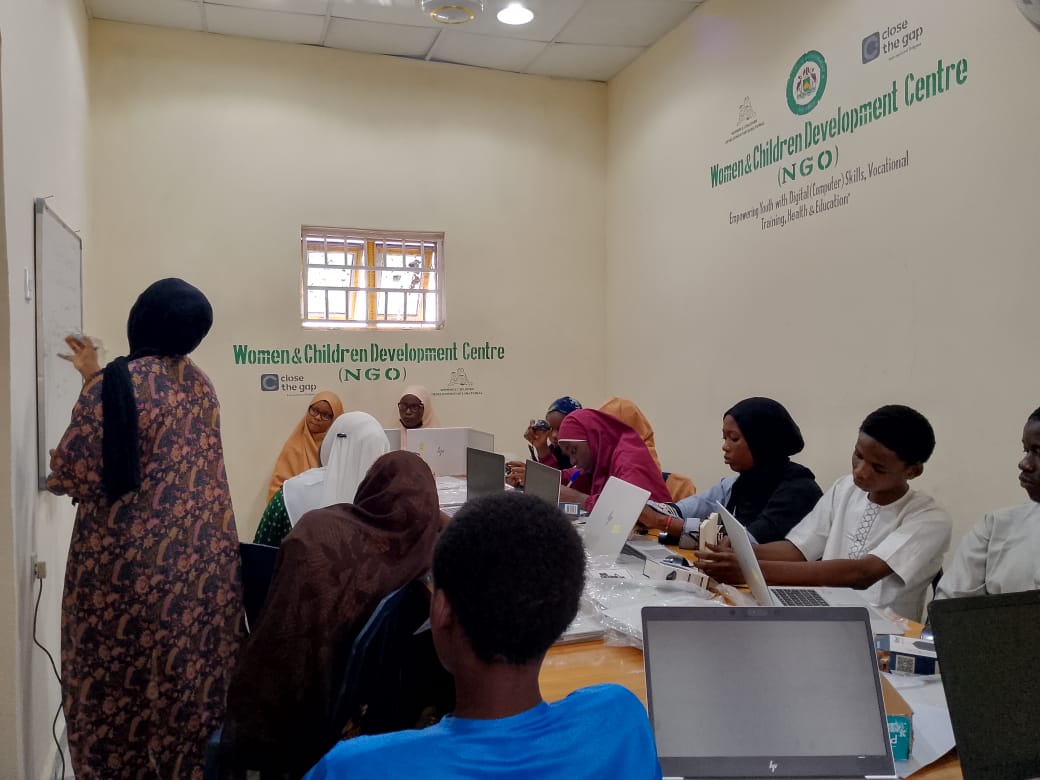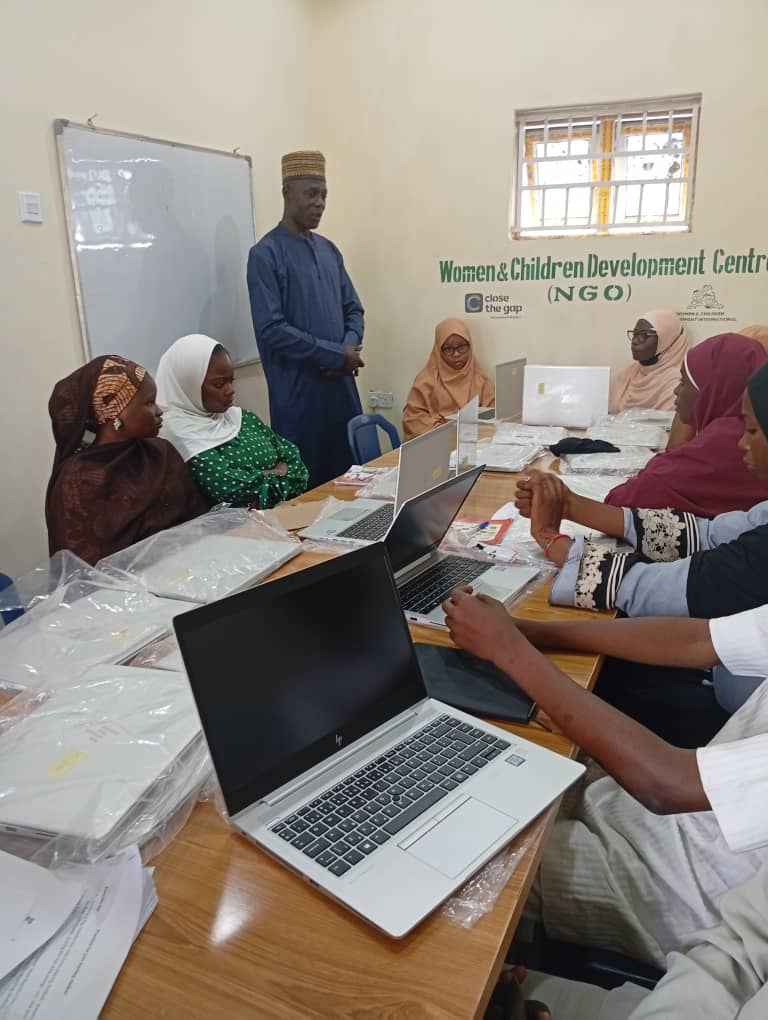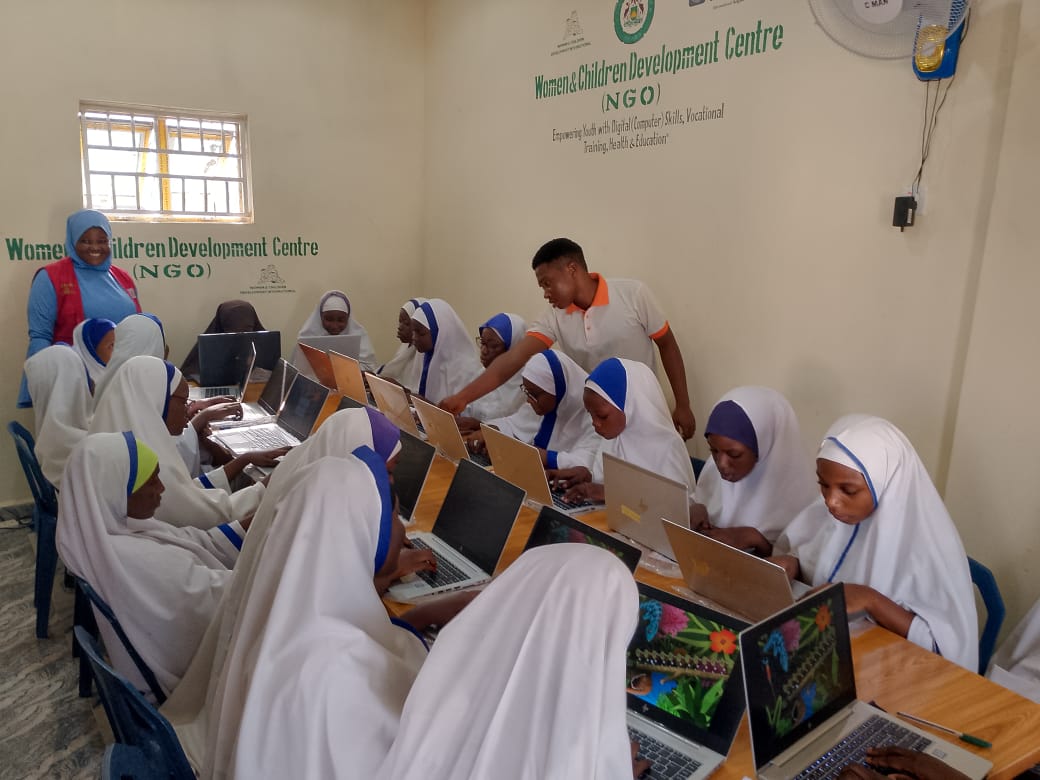A challenge widening the gender gap in technology
Persistent youth unemployment in Nigeria is deeply compounded by a severe digital skills gap in rural communities. Despite the global shift toward a technology-driven economy (aligned with SDG 8: Decent Work and Economic Growth), thousands of young people lack the foundational digital literacy required for higher education, formal employment, or entrepreneurship. This is particularly true for secondary school leavers in states like Kano.
The challenge is critical in areas like Ungogo and Gwale Local Government Areas, where functional computer training centers and reliable internet access are scarce.This digital exclusion is most acute for young women aged 18 to 22 who need computer proficiency to pass critical final examinations and compete for future job opportunities. This challenge is hence only widening the existing gender gap in technology.
A Targeted Solution: Building Digital Futures
We were grateful to address this urgent need in partnership with the Women & Children Development Centre (WCI) and the Kano State Government. Together, they launched the transformative Rural Youth Digital Skills Acquisition and Employment Program. This three-month intensive diploma program (running from October to December 2025) is specifically designed to transition rural youth from digital illiteracy to job-ready competence.
The overwhelming demand underscores the necessity of the program: only 48 participants out of 1,281 applicants were selected due to resource limitations.This highly selective intake (a 3.7% acceptance rate) includes 41 young women (85%) and two female teachers, demonstrating a strategic commitment to female empowerment and institutional capacity building within local schools.

High-Value, Employability-Focused Curriculum
The program delivers structured, hands-on training led by experienced ICT and AI professionals with a curriculum that is designed to move beyond basic literacy. Instead, it focuses on high-value, employable skills, such as the following:
1. Productivity & Professional Communication:
Mastery of Microsoft Office Suite (Word, Excel, PowerPoint) for documentation and data management.
2. Digital Entrepreneurship:
Proficiency in CorelDRAW for graphic design, enabling immediate income generation through local business services.
3. Advanced Digital Tools:
Introduction to AI Applications for enhanced efficiency and problem-solving, preparing participants for future tech integration.
4. Digital Citizenship:
The essential training in the internet, in email use, and on online marketing for effective communication and research.
5. Educational Equity:
Dedicated practical sessions on Computer-Based Exam (CBE) practice in core subjects, directly supporting female students preparing for national school-leaving examinations.

Measurable Impact and Scaling Need
Just one week into the training, participants are already establishing foundational skills in computer operations and productivity software.
As Dr. Kamal Ahmed, Executive Director of WCI, noted: "This program is an investment in your future. We expect you to justify this support by mastering these skills and using them to build sustainable livelihoods."
Over 1,200 young futures are waiting.
The initiative is directly contributing to SDG 4 (Quality Education) by strengthening teacher capacity and enabling equitable access to educational technology. It empowers unemployed youth with sustainable, income-generating skills. With over 1,200 qualified young people remaining on the waiting list for the next session (scheduled for January 2026), the immediate priority for WCI and its partners is to secure the resources necessary to expand and scale the program. This expansion is vital to ensure that this model of targeted, high-impact digital skills training can truly meet the enormous demand across Kano State and prevent further widening of the digital divide.
